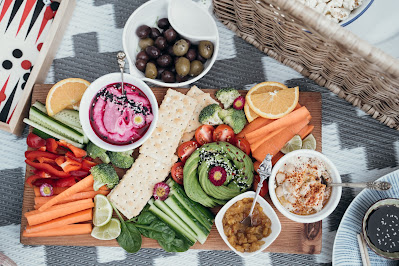When it comes to choosing the healthiest foods for dinner, it's important to focus on incorporating a balanced combination of nutrient-rich ingredients. A well-rounded meal should include lean proteins, whole grains, plenty of vegetables, and healthy fats. Here are some examples of healthy foods that you can include in your dinner:
- Lean proteins: Opt for lean sources of protein such as skinless poultry (chicken, turkey), fish (salmon, tuna), tofu, legumes (beans, lentils), or Greek yogurt. These provide essential amino acids for muscle repair and growth.
- Whole grains: Choose whole grains like brown rice, quinoa, whole wheat pasta, or whole grain bread. These are high in fiber, which aids in digestion and helps you feel fuller for longer.
- Vegetables: Load your plate with a colorful variety of vegetables like leafy greens (spinach, kale), broccoli, bell peppers, carrots, cauliflower, and zucchini. They are packed with vitamins, minerals, and antioxidants.
- Healthy fats: Include sources of healthy fats such as avocados, nuts (almonds, walnuts), seeds (chia seeds, flaxseeds), and olive oil. These fats help with nutrient absorption and provide energy.
- Herbs and spices: Enhance the flavor of your dishes with herbs and spices like garlic, ginger, turmeric, basil, oregano, and cilantro. Not only do they add taste, but they also offer potential health benefits.
- Limit processed foods: Try to minimize or avoid highly processed foods that are often high in added sugars, unhealthy fats, and sodium. Instead, opt for whole, unprocessed foods whenever possible.
- Hydration: Don't forget to drink plenty of water throughout the day, including during dinner. Staying hydrated is important for overall health and digestion.
Remember, portion control is key. Be mindful of your serving sizes to avoid overeating. Additionally, listening to your body's hunger and fullness cues can help you maintain a healthy relationship with food.
It's always a good idea to consult with a registered dietitian or healthcare professional for personalized dietary advice based on your specific needs and health goals.


